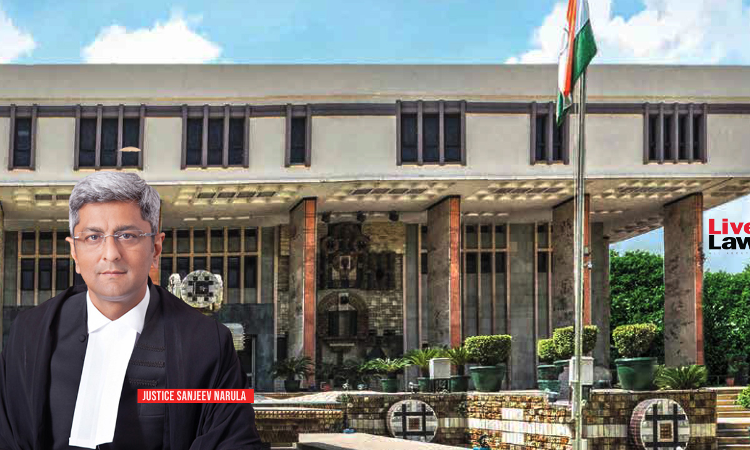Wife Entitled To Reside In Shared Household Even If Husband Disowned By Parents: Delhi High Court
Nupur Thapliyal
18 Oct 2025 12:00 PM IST

The Delhi High Court has observed that the wife residing in the house immediately after her marriage constitutes “shared household” under the Domestic Violence Act and is entitled to reside in the same despite the husband being disowned by his parents later.
Justice Sanjeev Narula said that such a residence where she lives along with her husband and in-laws after marriage is a household where she lived in a domestic relationship.
While dealing with a dispute between a daughter in law and her in-laws, the Court said:
“The Respondent (wife) married on 14th November, 2010 and, immediately thereafter, began residing at the subject premises with her husband and in-laws. That residence brings the premises within Section 2(s): it is a household where she lived in a domestic relationship. Once that threshold is crossed, Section 17(1) confers a right of residence irrespective of title, and Section 17(2) forbids eviction except by due process. The contention that the husband moved out in 2011, or that the parents-in-law disowned” him, does not denude the house of its character as a shared household.”
The couple got married in 2010. However, due to marital differences, the husband and wife shift to a rented accommodation in November, 2011.
It was the in-laws' case that prior to the couple moving out, they had disowned and disentitled their son from all movable and immovable properties.
The version was disputed by the wife, claiming that upon returning home, she found her husband and his parents removing her belongings to a rented room, allegedly to dispossess her from the matrimonial home against her wishes.
The wife filed a complaint under the DV Act against the husband and in laws, claiming a right of residence in the shared household, being the ground floor of the property.
The mother in law also filed a complaint under the enactment seeking protection against the wife and her family members, from alienating or otherwise disposing off part of the property.
The mother in law's complaint was decided wherein the trial court held that she was not an aggrieved person within the meaning of the DV Act. It however injuncted the daughter in law and her family from contacting the in laws and from interfering with their possession and enjoyment of the first floor of the property.
The trial court held that the daughter in law too had a recognised right of residence in the shared household i.e., the ground floor of the property, and could not be directed to vacate the same or to pay use or occupation charges.
The daughter in law as well as the in laws filed appeals against the decision. Vide a common order, the sessions judge dismissed all the appeals.
Upholding the decision of the trial court, Justice Narula rejected the in laws' contention that the wife's possession of the property was merely notional or mala fide, saying that it was founded on selective reliance upon electricity bills.
The Court said that protective orders passed by the trial courts rested upon adequate material and could not be disturbed in exercise of revisional scrutiny.
“The Court is therefore satisfied that the existing arrangement, whereby the Petitioners occupy the first floor, and the Respondent resides on the ground floor, sufficiently accommodates both interests. It neither deprives the Petitioners of possession nor leaves the Respondent shelter less. The residence order, limited to preventing dispossession without due process, operates as a safeguard rather than a sanction. This practical balance also accords with the principle of proportionality that underlies the protective jurisdiction under the DV Act,” the Court said.
Upholding the orders passed by the trial court and the appellate court, the Court said that the premises in question qualified as a shared household, the wife's right of residence stood attracted and the residence orders, including restraints against dispossession and alienation, fell well within jurisdiction and purpose.
Title: KHUSHWANT KAUR v. SMT GAGANDEEP SIDHU & other connected matter


